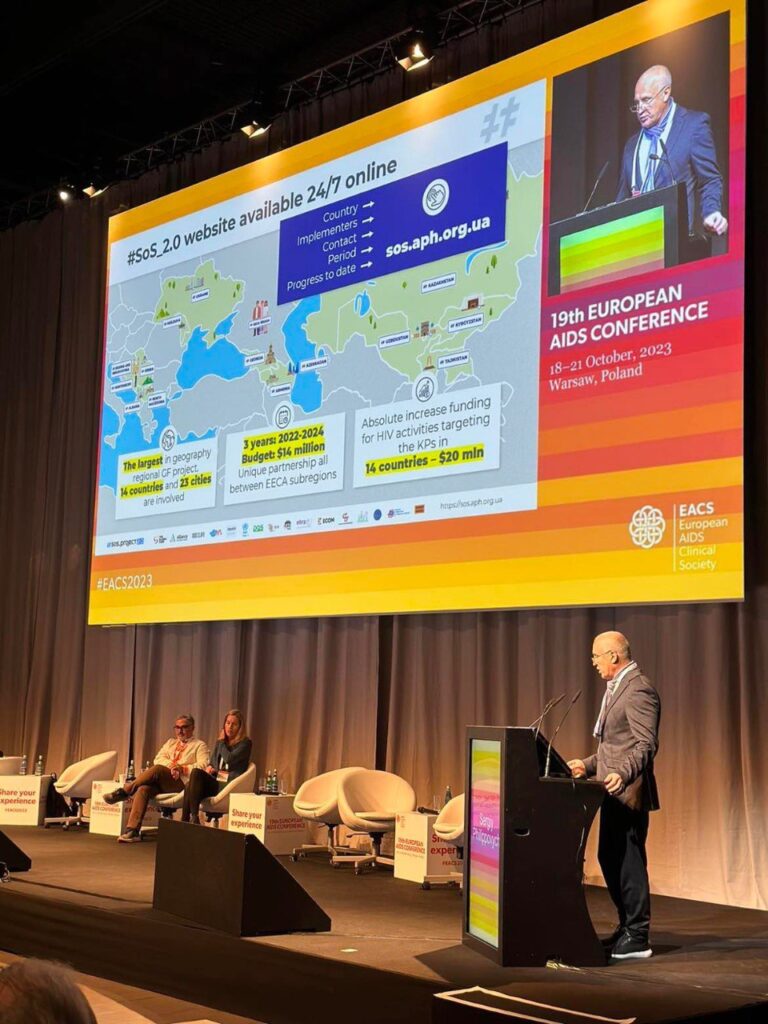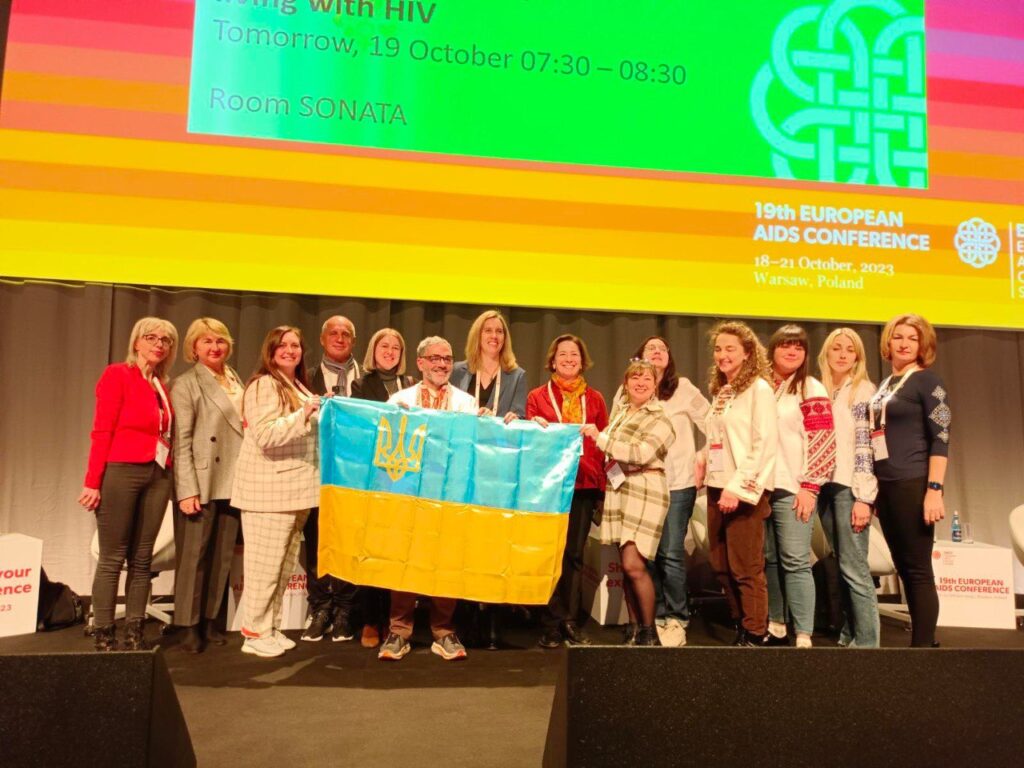Alliance shares progress in implementing long-acting and pills PrEP programs in Ukraine and countries of the WHO European Region at EACS 2023
On October 18, in Warsaw, experts from Central Asia, Eastern and Southern Europe discussed the progress of implementation of national and pilot programs on pre-exposure prophylaxis (PrEP), which is recommended by WHO as an effective method of HIV prevention among the most vulnerable to HIV.
The session “PrEP, from pills to long-acting injectables: current status of policy, marketing and implementation in Eastern Europe and Central Asia” was moderated by Stela Bivol from the WHO Office for Europe and Nadia Yanhol from the Alliance for Public Health. The speakers shared their experience: Ioannis Mameletzis, WHO Ukraine, Sergii Filippovych, Alliance for Public Health, and Jessica Grignon, USAID/Ukraine.
«We have come a long way since WHO made that recommendation back in 2015 that any person at risk for HIV should be offered oral PrEP. Today, we have three WHO-recommended options, oral PrEP, long-acting cabotegravir, and the dapivirine vaginal ring. However, we have much work ahead to ensure equitable access to all three options in Europe, especially in the EECA region», – said Ioannis Mameletzis, WHO Ukraine.
Particular attention was focused on discussing the unprecedented pilot project for the introduction of injectable PrEP in Ukraine, which is unprecedented for the region. Interestingly, Ukraine is the first country in Central and Eastern Europe and Central Asia to receive this unique opportunity for HIV prevention among key populations with PEPFAR technical support.
Sergii Filippovych, Director of the regional #SoS 2.0 project, shared the details of the Ukrainian pilot, which is being implemented by the Public Health Center of the Ministry of Health of Ukraine in partnership with the Alliance for Public Health and Alliance.Global, with the support of PEPFAR Ukraine, CDC and WHO Ukraine. The two-year pilot project is designed for 100 patients. The target group is men who have sex with men (MSM) in Kyiv and Lviv. Unlike tablet PrEP, which is taken daily or “on demand,” one injection of cabotegravir will be enough to be given once every two months. The first clients will receive CAB LA in December this year.
He also said that in 2023, pilot projects for tablet-based pre-exposure prophylaxis (PrEP) were launched in Bosnia and Herzegovina and Montenegro. In October, the first patients started taking PrEP in Montenegro, and in Bosnia and Herzegovina, the pilot project started in July. The initiators and coordinators of the pilot in the countries are Partnerships in Health and CAZAS, with technical and financial support provided by the Alliance for Public Health as part of #SoS 2.0. The preparatory process for the launch and all domestic approvals took more than a year. For the pilot, Tenofovir/Emtricitabine generic was procured, which is 10 times cheaper than the drugs currently used in these countries to treat HIV in patients.
In summarizing his speech, Mr. Filippovych noted the following: “Despite of success of PrEP implementation in Ukraine still is a need to scale up efforts in Ukraine and the EECA region. The important role could play implementation of innovations (LA PrEP), increase awareness but crucial after all is overcoming stigmatization, discrimination, and criminalization of KPs.”








